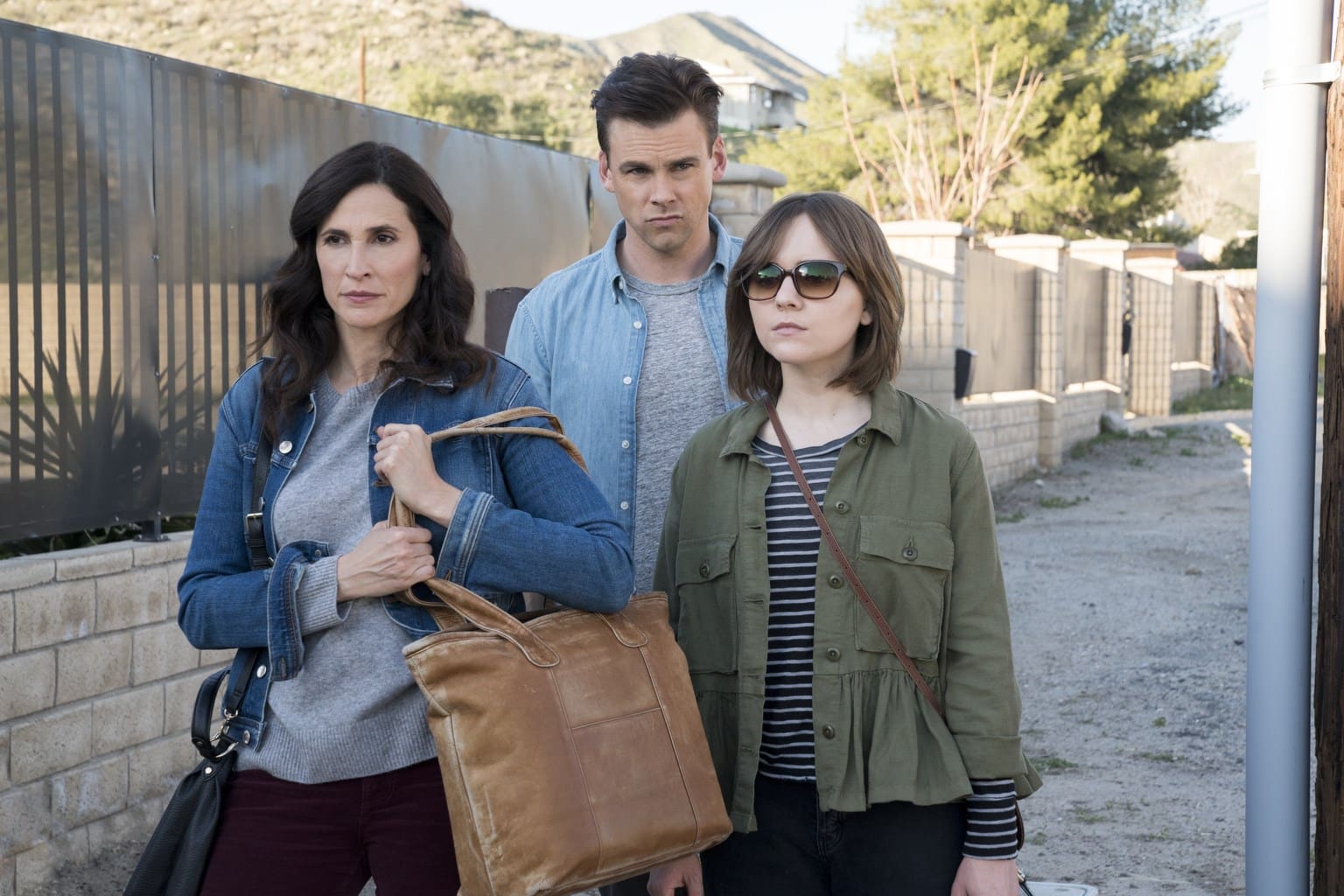
Aside from Zander Lehmann bringing Casual into the world, ending Casual is perhaps the best thing to happen to Hulu’s longest-running comedy. It could have been strung along for a few more seasons, exploring the ongoing micro-tragedies and exploits of its core family. Instead, Casual cuts out the middleman and jumps right to the end, delivering the best season of the series in an eight-episode order.
At the end of season three, Alex (Tommy Dewey) was blindsided by the news his Airbnb renter, Rae (Maya Erskine), was pregnant after a drunken night together. Season four jumps right in, introducing Carrie as a toddler being raised by Alex and Rae as romantically uninvolved parents making the best of an accident.
But the show feels like it picked right back up while clearly defining the time jump.
Alex has finally shaved after three seasons, Laura (Tara Lynne Barr) has a bob and a steady girlfriend, while Val (Michaela Watkins) is on the psychiatrist couch instead of her practice’s office. The cosmetic changes are common tropes but it’s the more technical work that makes the transition work, introducing the season by dreaming in Kubrick and setting up an enhanced version of Siri.
It should also be noted this is the first season in which waffles are nowhere to be found. Once Alex’s sense of comfort — after the waffle iron broke last season — they’re now replaced by his passion creating themed pancakes for his daughter. Very rarely do characters’ food choices inform the characters as well as it has throughout Casual. Even the “egg” makes a great appearance to further ground the show.
All of the changes around the principal cast are small enough to create a believable version of the future. There are a few moments of corporate anxiety and political unrest (Donald Trump is never explicitly named) but they’re never overbearing and if you have a liberal bent, at least provide brief levity.
There’s a joke about watching the last Super Bowl on AT&T-Time Warner-Spectrum that’s particularly prescient now that Disney has absorbed Fox. Media is becoming more singular. It’s a timeline that doesn’t feel far off aside from the NFL shutting down in the next four or five years (Zander, if you’re right, drinks are on me).
The characters that inhabit this new, apocalyptic timeline inhabited by robots and A.I. are still the heart, though. There’s no drastic change in character. All their motivations and reactions are tuned a notch. This isn’t the darkest timeline in Community.
Alex is still a quick-witted thirty-something, Laura is still finding herself both emotionally and physically, and Val’s self-consciousness is still present. They’ve been living apart for quite a few years now, but they’re a family that always feels symbiotic despite their petty chaos.
Should the series have ended after one season (or even two), I wouldn’t have felt any of them would have been better off in the world. Alex’s struggle as an entrepreneur was equal to his toxic relationship and effort to fix them. When Laura decided to take off on her own in season three, there was a fair amount of concern she made the wrong decision.
Once the credits roll during the finale, there’s a sigh of relief. Everything is going to be okay for these characters. Val and Laura’s mother-daughter relationship is the missing puzzle piece that brings everything back together not only for themselves but assures Alex he’s alright as well. Add in the parenthood he was running away from his whole life in reaction to his upbringing, he’s finally the fully-formed person he once thought he was before.
Doing the thing that makes you happy as long as it’s productive has been the through-line of the show and the characters are now aware of that.
Throughout the eight episodes, the writers toe the line enough between political awareness and how much that informs character motivations. The development and revelations of the characters never feel rote. They’re organic and gradual progressions of character, like Laura learning how to take on a new identity instead of being boxed in as the brokenhearted chef. Similarly, Val opens up her own wine shop instead of listening to everyone else’s problems and with it, comes one of her most testing and revealing relationships.
Structurally, the show leaps as well. There are quite a few standout episodes, with one resembling a Kubrick film and another turning into a bottle episode but the standout remains its take on “The Odyssey.” The show never swings above its own weight and instead, presents a stripped down version of higher-profile styles.
Exploring the relationship of a few side characters like Leon (Nyasha Hatendi) and Leia (Julie Berman) has its place and have created a meaningful relationship over time, but it runs full-tilt when the focus lands squarely on the three main characters, bringing the narrative right back where it started three years ago.
Even without executive producer Jason Reitman at the helm for any of the episodes this time around, the season works well. There’s still an impressive director slate including Gillian Robespierre and Emmy-winner Michael Weaver. Series creator Lehmann even sits behind the camera for an episode centered on celebrating the demise of the NFL, saying goodbye to a barbaric ritual (I’ll assure you football fans, I spoke to him about this and am pleased to report he is a football fan but isn’t afraid to call out its recent negative effects).
I hesitate relating any show to Seinfeld, but seeing Casual go out so strong on its own terms so boldly as well is comforting. Unlike the show about nothing, Lehmann’s creation has allowed its characters to hug and learn, and it’s all done without being too sentimental about the end. The characters are better for it and so is the audience.
Overall Grade: 8.5 out of 10
Casual season four can be found streaming on Hulu in its entirety July 31.
https://www.youtube.com/watch?v=wHpJajnsfyk

